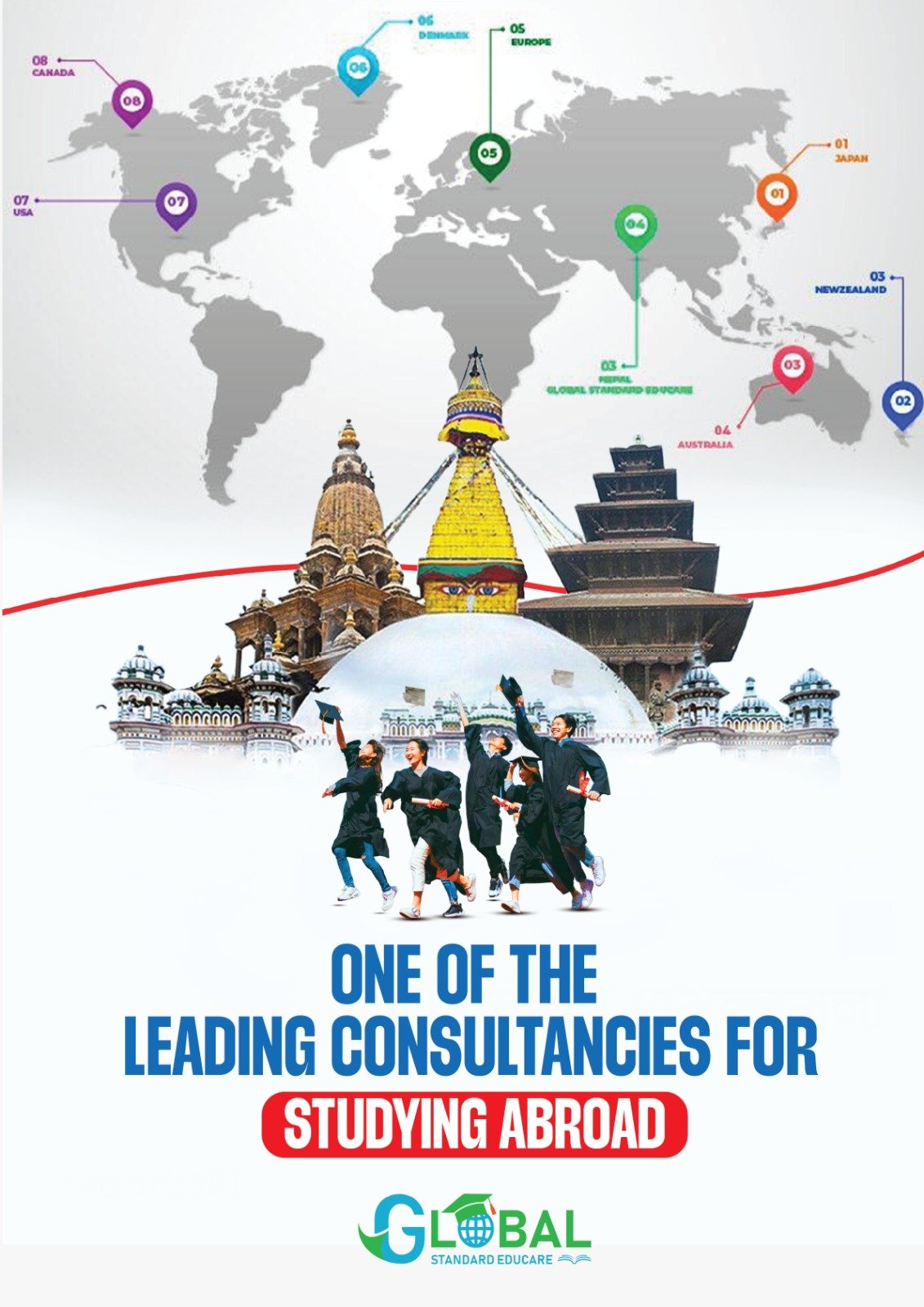
Mastering the Art of Communication for Study Abroad Success
For Nepali students pursuing their studies abroad, securing admission to a coveted program is just the first hurdle. The next challenge lies in acing the interview, whether for university admissions, embassy applications, or job placements after graduation. These interviews offer an opportunity to showcase your academic capabilities, personal qualities, and suitability for the program or position. With the right preparation and strategic communication skills, you can confidently impress your interviewers and unlock the doors to your future.
This blog delves into the world of interviews for study abroad aspirants, equipping you with valuable tips and strategies to excel in different interview settings.
Demystifying the Interview Landscape: Different Types, Different Approaches
The interview format can vary depending on the stage of your study abroad journey. Here's a breakdown of some common interview types:
- University Admission Interviews: Universities may conduct online or in-person interviews to assess your academic qualifications, motivation for pursuing the program, and future career aspirations.
- Embassy Interviews: Embassy interviews are crucial for obtaining a student visa. These interviews evaluate your purpose for studying abroad, financial stability, and commitment to returning to Nepal after your studies.
- Job Placement Interviews: For students seeking employment opportunities after graduation abroad, job placement interviews will assess your qualifications, professional skills, and cultural fit for the specific role.
While the specific focus areas may differ, mastering effective communication skills remains paramount for success in all interview scenarios.
Decoding the Interview Process: Understanding What They're Looking For
Beyond academic transcripts and test scores, interviewers seek candidates who demonstrate the following qualities:
- Clarity and Conciseness: Communicate your thoughts and ideas clearly and concisely, avoiding unnecessary jargon or rambling.
- Passion and Motivation: Express genuine enthusiasm for your chosen field of study and articulate your future goals.
- Critical Thinking and Problem-solving: Be prepared to discuss challenges you've faced and illustrate your ability to think critically and find solutions.
- Strong Communication Skills: Demonstrate active listening and strong verbal and non-verbal communication skills, including confident eye contact and appropriate body language.
- Cultural Awareness: For interviews abroad, showcase your understanding of the target culture and your willingness to adapt to a new environment.
Preparation is Key: Building Your Confidence for Success
Thorough preparation is essential for conquering any interview. Here are some strategies to enhance your confidence and performance:
- Research the Institution/Company: Carefully research the university, program, or company you are interviewing for. This demonstrates your genuine interest and allows you to tailor your responses accordingly.
- Practice Makes Perfect: Engage in mock interviews with friends, family, or professionals familiar with the interview process. Practice answering common interview questions and receive constructive feedback on communication skills.
- Prepare Your Own Questions: Formulate insightful questions for the interviewer to demonstrate your curiosity and engagement. This shows initiative and genuine interest in the opportunity.
- Anticipate Common Questions: Research and prepare answers for common questions across different interview types. This could include questions about your academic background, career goals, motivations for studying abroad, or experiences showcasing your problem-solving skills.
- Dress for Success: Dress professionally and appropriately for the interview setting. First impressions matter, and a polished appearance conveys professionalism and respect for the interviewer.
Mastering the Art of Response: Effective Communication Techniques
During the interview, utilize effective communication techniques to positively influence the interviewer:
- Highlight Your Accomplishments: Use the STAR method (Situation, Task, Action, Result) to showcase your achievements and skills. Clearly explain the challenge or situation, outline the tasks you undertook, describe the actions you implemented, and detail the positive results achieved.
- Quantify Your Impact: Whenever possible, quantify your achievements by using numbers, data, or concrete examples. This demonstrates the tangible impact of your skills and experiences.
- Embrace Enthusiasm: Express genuine enthusiasm for the opportunity, conveying your passion for the program, field of study, or future career path.
- Active Listening: Practice active listening by making eye contact, nodding at appropriate moments, and summarizing key points mentioned by the interviewer. This reflects attentiveness and engagement.
Beyond Words: Non-Verbal Communication Matters Too (Continued)
- Facial Expressions: Use facial expressions that reflect your emotions genuinely. Engage with a smile when appropriate and maintain a positive demeanor.
Following Up Demonstrates Your Commitment
After the interview, send a thank-you email to the interviewer within 24 hours. Express your gratitude for the opportunity and briefly reiterate your interest in the program or position. You can also use this opportunity to clarify any information you may have forgotten to mention during the interview.
Conclusion: Confidence and Communication Hold the Key
By understanding the different interview types, preparing diligently, honing your communication skills, and exuding confidence, you can effectively navigate the interview process. Remember, an interview is a two-way street. While they are evaluating your suitability, you too have the chance to assess the program, university, or company to ensure it aligns with your aspirations.
With the strategies outlined in this blog, you can approach interviews with confidence and clarity, unlocking not just academic opportunities but also a rewarding future beyond your home borders.
Remember, your journey doesn't end here! Our next installment will delve into the exciting world of studying abroad, covering topics like cultural adaptation, academic life at international universities, and navigating the exciting (yet sometimes challenging) experience of living in a new country.



.png)


.png)

